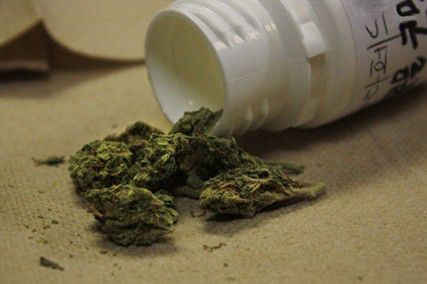
Amid fierce debate over the distribution of medical marijuana, the Massachusetts Department of Public Health released the first round of medical regulations Friday and opened up a public comment period to allow community input on how the drug will be used medicinally.
Patients who are qualified for the drug would be allowed a 60-day supply of up to 10 ounces of marijuana at a time and a licensed physician would determine a patient’s need for the drug, according to the regulations.
“DPH solicited an unprecedented level of input in drafting these regulations to create a medical marijuana system that is right for Massachusetts,” said Lauren Smith, interim commissioner for the DPH, in a press release Friday. “In this proposal, we have sought to achieve a balanced approach that will provide appropriate access for patients, while maintaining a secure system that keeps our communities safe.”
The medical marijuana statute passed in November with 63 percent of voters in favor. Out of the 351 Massachusetts communities, 349 experienced a majority vote in favor of the bill. The statute was enacted Jan. 1.
There can be up to 35 dispensaries in the Commonwealth with a maximum of five per county. The law allows people who have a legitimate medical condition, such as cancer, glaucoma, Crohn’s disease or Parkinson’s disease, access to the drug, according to the statute.
Matt Simon, legislative analyst for the Marijuana Policy Project, said people should use the comment period to address concerns they have with the regulations.
“They [DPH officials] released a public comment [period] on any issues people can raise and final rules to be adopted before the department can move forward with licensing opening dispensaries,” he said.
Simon said the Massachusetts legislature did not want to deal with the issue of medical marijuana.
“Unfortunately Massachusetts is a state where the legislature has not been willing to take on these issues, so most decisions were passed by ballot initiatives,” he said. “There are a lot of people who think 2016 would be a good year to pass an initiative to legalize [recreational] marijuana.”
Heidi Heilman, president of the Massachusetts Prevention Alliance, said 10 ounces for a 60-day period is too large of an amount.
“We are working with a very bad law that’s riffed with potential for abuse,” she said. “This law wasn’t written by doctors or patients. It was written by marijuana lobbyist groups.”
Heilman said the public should understand the law before any regulations are put in place.
“The public needs to understand what the industry is and how they operate,” she said. “People were operating on the premise that would give those people in chronic conditions access to marijuana. We were promised the safest, most restrictive regulations in the country, but we are looking at a marijuana business, not a medical program.”
Simon said public involvement is key in moving forward to create guidelines that would benefit the whole community.
“In Massachusetts, draft regulations are defined tightly,” he said. “I would anticipate that there would be an area to discuss rule making. There will be people who call for rules that don’t exclude patients that wouldn’t have been originally excluded under the new language.”
Heilman said MAPA would continue to interact with the public and educate citizens about the specifics of the law.
“We are working with municipalities to put in regulations into local areas,” she said. “We are working with different leadership to figure out how to make this a more responsible program. Just because people are trying to help the ill, doesn’t mean it will be done right.”
This is an account occasionally used by the Daily Free Press editors to post archived posts from previous iterations of the site or otherwise for special circumstance publications. See authorship info on the byline at the top of the page.




How does Ms. Heilman know the proper dose? Just askin’…
“People were operating on the premise that would give those people in chronic conditions access to marijuana. We were promised the safest, most restrictive regulations in the country, ”
The people voted and approved- but the people with chronic conditions are still waiting – In the meantime- The pain still exists while misinformed people decide.
Please stop the bitching, nanny state supporters. We exercised our constitutional right to vote on it and it won by a large margin. I don’t smoke weed but please just let be, do all you puritan minded middle aged complainers need to oppose it as if it were a newly appointed communist government? FYI, it is very easy to get weed, this will not affect high school students access to it. I hope that the dispensaries are opened in every town that strongly opposed it, I would love to see all these douchy parents worried. Hahaha